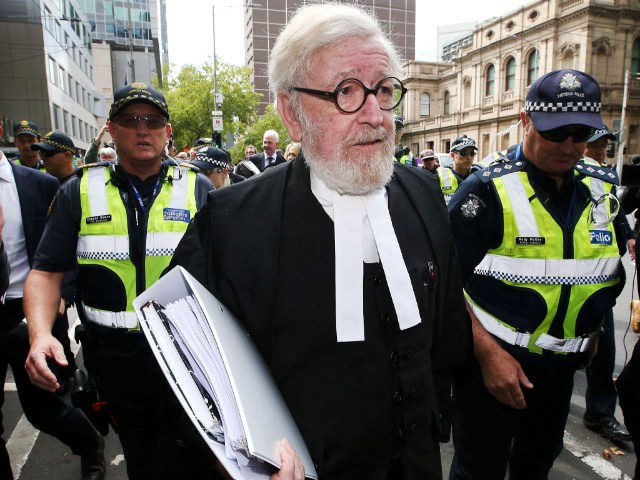An Australian judge has sentenced Cardinal George Pell to six years in prison for sexual abuse, with the possibility of parole after three years and eight months.
In December, a jury found Pell guilty of sexually abusing two choir boys when he was archbishop of Melbourne in the 1990s. Pell has always maintained his innocence and his lawyers have filed an appeal, which will take place next June.
Not long after the guilty verdict issued against Pell, the Holy See announced the Congregation for the Doctrine of the Faith would open its own canonical investigation of the charges against the prelate.
During his public reading of Pell’s sentence, Victoria County Judge Peter Kidd said that the alleged abuses committed by the cardinal had “a significant and lasting impact” on one of the victims, who suffered a series of negative emotions with which he struggled for many years, aggravated by problems of trust and anxiety.
“I would characterize these breaches and abuses as grave,” the judge said during the sentencing, telling Pell: “Your conduct was permeated by staggering arrogance.”
After maintaining a media blackout during the trial, Kidd ordered the reading of the sentence to be broadcast live on various television channels, which lasted over half an hour. Pell supporters said the public reading — done in the name of “open justice” — was really another confirmation of the ongoing media campaign against the cardinal, according to Vatican News.
Pell’s supporters have not been few and a number of observers have denounced the trial as a travesty.
The former head of the Vatican’s doctrinal office, the German Cardinal Gerhard Müller, railed against the conviction, calling the accusations “absolutely unbelievable.”
As others have done, Müller said that the circumstances surrounding the alleged abuse undermined the plaintiffs’ case, since the incident was purported to have taken place in a public place — the archbishop’s sacristy — following a well-attended Sunday Mass.
“Nobody witnessed it,” the cardinal said, adding that that it would have been very difficult with “all the other persons” presumably in the area after Mass. One could believe such an incident could take place in a private house, he said, but not “in the public cathedral.”
“The allegations against him are absolutely unbelievable, it’s impossible. It’s without proof, against all evidence,” Müller said.
“If there’s no proof, you cannot condemn a person to 50 years in a fortress,” he continued.
Judging decades-old sex abuse charges with no corroborating evidence risks turning the presumption of innocence into a “legal fiction,” said Canon lawyer Ed Condon, which obliges jurors to choose “between the word of the accuser and that of the accused.”
In these cases, “the right to due process is at risk of becoming moot,” Condon said.
The Catholic intellectual George Weigel compared the Pell conviction to the ignominious Dreyfus case, where Alfred Dreyfus, a Jewish army captain, was convicted of treason in 19th-century France.
“The charge was false; Dreyfus, a Jew, was framed,” Weigel wrote. “His trial was surrounded by mass hysteria and people with no grasp of the facts celebrated when Dreyfus was condemned to life imprisonment on Devil’s Island.”
Similarly though, Pell’s two trials “were held under an Australian media blackout, irrationality and venom, stoked by media bias, had already done their work,” Weigel noted.
After the official pronouncement of the sentence, Pell was returned to the Melbourne maximum security prison where he is being held in solitary confinement.
As former prefect of the Vatican’s Secretariat for the Economy, Pell is the highest-ranking Catholic figure to be tried and found guilty of the sexual abuse of minors.
Follow Thomas D. Williams on Twitter Follow @tdwilliamsrome

COMMENTS
Please let us know if you're having issues with commenting.